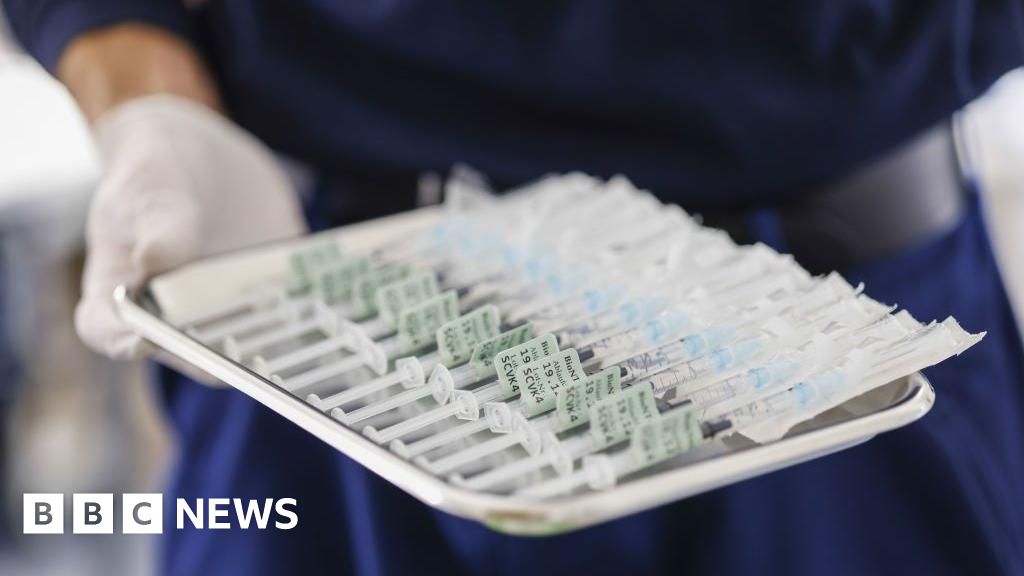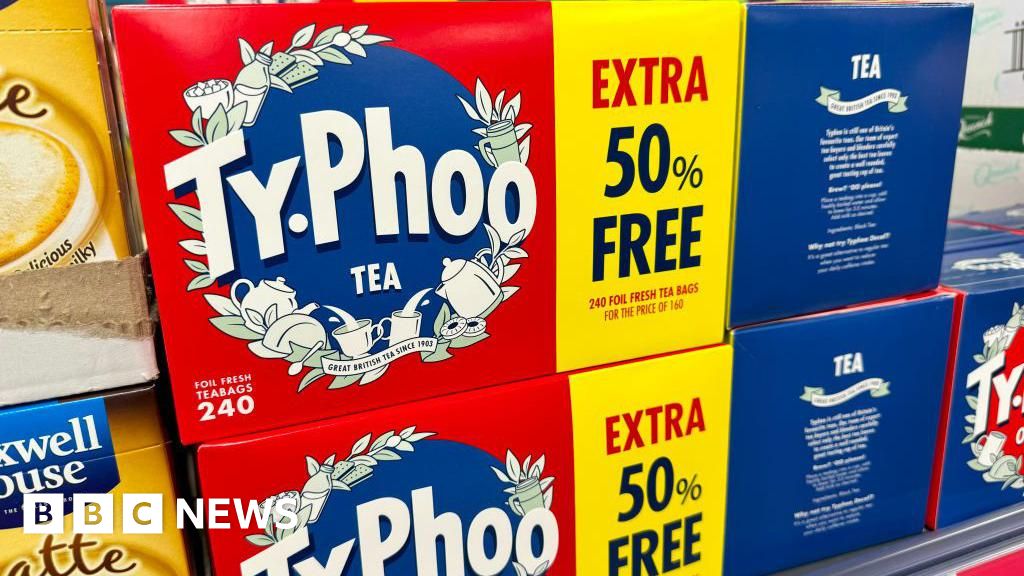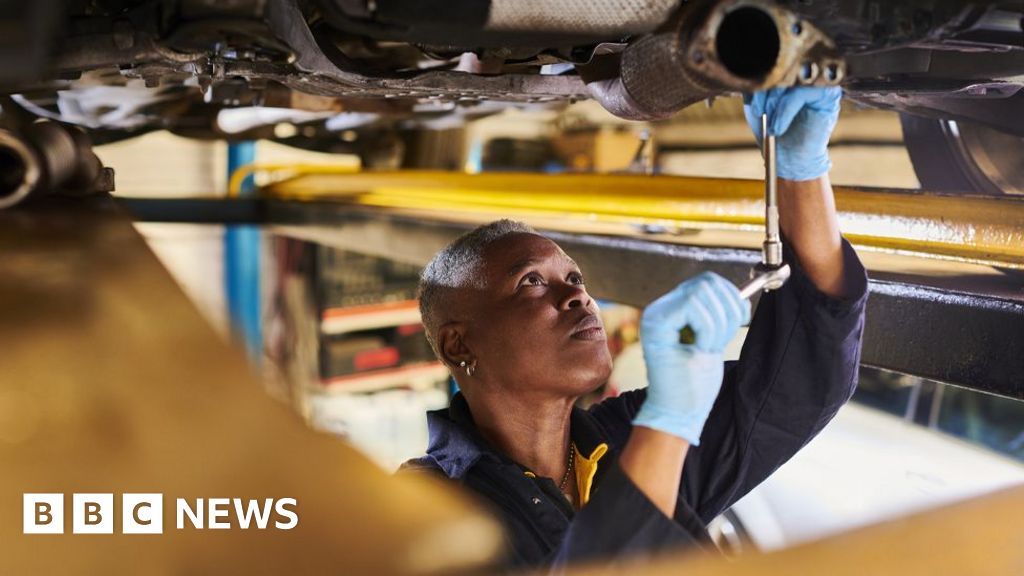ARTICLE AD BOX
By Michael Race & Beth Timmins
Business reporters, BBC News
Image source, CathyFrost
Image caption,Cathy Frost wants her staff to continue to self isolate
For small business owner Cathy Frost, the removal of all coronavirus rules in England from Thursday "seems a bit too quick".
Ms Frost, who runs a small independent gift and homeware shop, is one of several firms urging her staff to isolate if they test positive for Covid.
She also hopes to continue testing workers twice a week but is worried about the new costs for them, with tests no longer free for most people from 1 April.
"I feel conflicted as, while we're keen to get back to normality on the high street, we need to protect ourselves and our customers and it worries me that the rules are going so fast," she said.
Ms Frost is not alone. While business groups have broadly welcomed the government's latest "Living with Covid" plan after almost two years of restrictions, some firms are nervous about the changes and unions have raised concerns.
From today, people with Covid will no longer be legally required to self-isolate but guidance will remain in place for those who test positive to stay at home for at least five days.
People in contact with someone with Covid will also no longer be advised to isolate or take daily tests and workers will no longer be required to tell their employer if they need to self-isolate.
Ms Frost said she felt regular testing was the "one thing that kept the virus in check".
She told the BBC she will continue to ask her two self-employed workers at her Ipswich-based business to isolate if they test positive, which she said was "the right thing to do" in the short term.
"I would not come into work [with Covid] and I would not expect my two members of staff to," she added.
Ms Frost explained she would make a "private agreement" with her staff if they needed to isolated to "make sure they were ok", given they would not be entitled to statutory sick pay.
Image source, NatalieFaulkner
Image caption,Natalie Faulkner (centre) also wants to keep Covid measures in for her staff
Natalie Faulkner, owner of salon Beauty With Inn in Northampton, also wants her staff to isolate if they test positive.
She said she didn't think her customers would feel safe if a member of staff who had Covid was doing their hair.
"Our main concern will be safety and that's it," she said.
The salon lost £4,000 from cancelled appointments due to Omicron cases in December so Ms Faulkner said she is keen to avoid having to "suck up all the costs" from any potential cases arising in the shop.
The hairdresser said she was unsure how her business "would cope" with a positive test due to being unable to pay an employee to isolate, but added she planned to discuss any options with her five staff.
The British Independent Retailers Association (Bira) said the removal of Covid restrictions "should be positive for retail and the high street in general", but said "clear messages" for staff were needed.
The trade body's chief executive Andrew Goodacre added that "it always feels counter-intuitive to remove restriction when cases are so high, but we hope the science supports such moves".
High street cosmetics retailer Lush also announced it will pay staff who test positive to isolate and will continue with Covid safety measures in its stores.
Scientists have offered different opinions on restrictions being removed. Prof Sir Andrew Pollard, who helped develop the Oxford-AstraZeneca vaccine, has said that "there isn't a right or wrong answer" to when restrictions change.
Meanwhile, Prof Anthony Costello, professor of global health and sustainable development at UCL, had said there was a worry that "we are telling not only our population, but the world, that there is really nothing to worry about, that it's all over, when it isn't".
'Treat it like flu'
Image source, Getty Images
Image caption,Hotelier Sir Rocco Forte
However, some business owners feel little trepidation about the change of rules.
Hotelier Sir Rocco Forte, chairman of Rocco Forte Hotels, said if a employee tested positive for Covid he would allow them to come into work if they felt well enough.
"The reality of this is we are saying Covid isn't a pandemic anymore. It's an endemic disease like flu it should be treated like flu," he told the BBC's World at One.
"And therefore you don't test every worker who falls ill with flu. You tell people to stay at home if they are not feeling well."
Hospitality has been one of the hardest-hit sectors by the pandemic, with the industry body UK Hospitality estimating restaurants, hotels and pubs have lost £115bn since March 2020.
Matt Shiells-Jones, a hotel manager in Manchester, said he welcomed the removal of mandatory isolation, but added he understood concerns still existed.
He said his business was allowing staff to "self-determine" over whether they isolated or not under its sickness policy, which gives staff the option to accumulate time in lieu, used banked overtime, take holiday pay, or get statutory sick pay.
"Sickness is a part of running a business with people and it is ultimately my responsibility to be prepared for that; ultimately if I cant be prepared for this after all this time operating under measures, then I haven't learnt any lessons or made the changes needed to be a valuable employer post-Covid," he said.
Image source, Getty Images
Image caption,The restaurant business has been hit hard by the pandemic restrictions
But it's not just employers who are grappling with the new Covid conundrum, workers are as well.
Sarah, who works in financial services, is apprehensive over the removal of all restrictions as she takes immunosuppressant medication for multiple sclerosis.
While her boss has allowed her to continue to work from home for the foreseeable future, she said she is worries of the wider implications for vulnerable people.
Once the isolation rules have ended, Sarah, who has received four jabs, said she planned to avoid crowded places such as restaurants and concerts because she feels that she "will now be excluded" from these places she used to love.
"It creates a two-tier society of the vulnerable and everyone else so I think it's a big setback for equality," she added.
Sarah's concern is one which has been raised by the Trades Union Congress, who has said people should not be forced into making a "terrible choice" over going into work with Covid or risking losing income by self-isolating at home.
The union has also raised concerns that lower-paid staff will face the toughest choice when deciding whether to isolate, with up to two million workers not qualifying for sick pay due to the amount they earn.

 2 years ago
21
2 years ago
21








 English (US)
English (US)